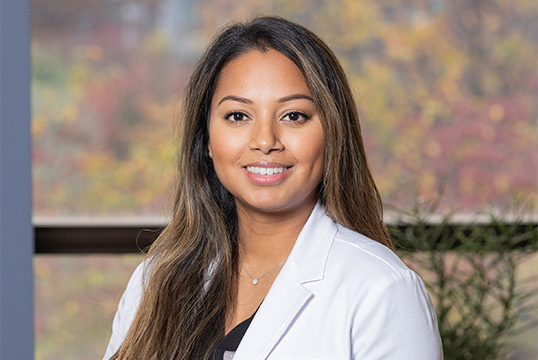Jump to Section
What is Retinal Vein Occlusion?
Retinal vein occlusion is a blockage in one of the veins that carries blood away from the retina. The retina is the light-sensitive layer of nerve tissue lining the back of the eye. Blockage of smaller retinal veins may occur when hardened arteries cross over and place pressure on one of the smaller retinal veins.
What Causes Retinal Vein Occlusion?
Retinal vein occlusion is most often caused by hardening of the arteries due to aging or plaque buildup. It may also occur from the formation of a blood clot. Risk factors for retinal vein occlusion include atherosclerosis, diabetes, high blood pressure, and certain eye conditions such as glaucoma, macular edema, or vitreous hemorrhage. Retinal vein occlusion can also lead to other eye conditions, such as glaucoma and macular edema. If you have had retinal vein occlusions in one eye, it may increase your risk of developing it in the other eye.
Symptoms of Retinal Vein Occlusion
You may not have any symptoms if you have a retinal vein occlusion. It’s typically diagnosed by an ophthalmologist during an eye exam. However, if you do have symptoms, you will notice sudden blurring or vision loss in all or part of one eye. Floaters or dark spots can also indicate a retinal vein occlusion. It may also cause pain or pressure in severe cases. If you do experience symptoms, it’s essential to see an ophthalmologist right away.
OUR PROVIDERS
Our team of eye doctors includes some of the foremost experts in laser vision correction and eye surgery in the greater Boston area. We look forward to helping you maintain healthy and clear vision for years to come. Learn more about our leading providers and the high level of service you can expect at the Nielsen Eye Center.
MEET OUR TEAM
Retinal Vein Occlusion Treatment
Evaluation for retinal vein occlusion may include vision testing, a dilated exam, angiography, measurement of intraocular pressure, pupil exam, retinal imaging, and visual field exam. These will allow your ophthalmologist to determine if any veins are blocked. Other tests may include blood tests for diabetes, cholesterol levels, triglyceride levels, and abnormal blood clotting levels. These may indicate that vascular concerns are factoring into your results.
Many people will regain vision, even without treatment. However, vision may not return to normal. You may need treatment to prevent another blockage from forming in the same or other eye. It’s important to manage diabetes, high blood pressure, and high cholesterol levels. Some patients may receive aspirin or other blood thinners.
Treatment for the complications of retinal vein occlusion may include:
- Focal laser treatment for macular edema
- Injections of anti-vascular endothelial growth factor (anti-VEGF) drugs into the eye. These drugs may block the growth of new blood vessels that can cause glaucoma
- Laser treatment to prevent abnormal blood vessel growth that can lead to glaucoma
Retinal vein occlusion is a sign of vascular disease. The same measures used to prevent other blood vessel diseases, such as coronary artery disease, may decrease the risk of retinal vein occlusion. Thus, getting regular exercise, maintaining a healthy weight, and eating a healthy and varied diet can reduce the risk of retinal vein occlusion.
DISCOVER OUR CONVENIENT
LOCATIONS NEAR BOSTON, MA
Schedule your appointment today at one of our four convenient offices situated on the South Shore. Serving the greater Boston area, our locations in Quincy, Weymouth, Norwell, and Norwood are here to provide exceptional eye care tailored to your needs.







